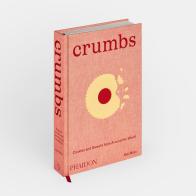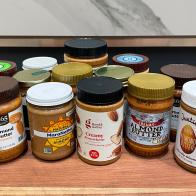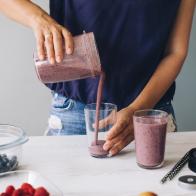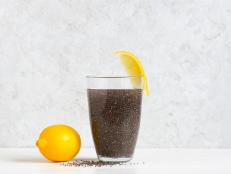Is Decaf Coffee Actually Carcinogenic?
Advocacy groups are citing the use of methylene chloride in some decaf coffees as cause for concern, but is this all getting overblown?
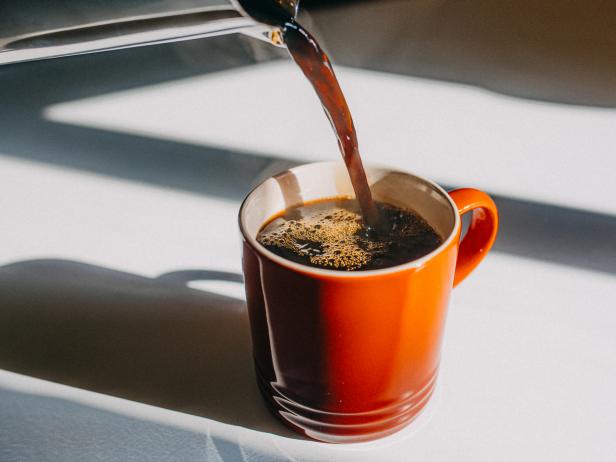
Stefania Pelfini, La Waziya Photography/Getty Images
For those who can’t get enough coffee, it’s often recommended to turn to decaf to help keep caffeine intake under control. While decaffeinated coffee may seem like a healthier alternative, consumer advocacy groups are saying otherwise.
These groups have recently called on the Food and Drug Administration (FDA) to ban methylene chloride, an ingredient used in some decaf coffees, with claims that it causes cancer. Would such a ban actually benefit consumers’ health, or are the calls just making a mountain out of a molehill? Here’s what research shows, and whether you should be skipping decaf coffee altogether.
In December 2023, consumer advocacy groups including the Environmental Defense Fund petitioned the FDA to ban the use of methylene chloride, a chemical commonly used when making decaf coffee. The petition claims that methylene chloride, along with three other chemicals, induces cancer in humans or animals and should be removed from the U.S. food supply. In addition, another consumer advocacy group, Clean Label Project, is also lobbying the California State Assembly for the ban.
At this time, the FDA allows methylene chloride to be used below 10 parts per million (ppm) in decaffeinated beans, however the petition calls for the complete ban of the additive. That being said, in April 2024 the Environmental Protection Agency (EPA) banned methylene chloride in most commercial uses in order to protect workers’ health. According to The Occupational Safety and Health Administration (OSHA), workplace exposure to methylene chloride can lead to an increased risk of cancer and problems with the heart, liver, central nervous system and skin. This can occur through skin contact or inhalation in those who are working with the chemical.
With this in mind, it’s fair to wonder whether you should be sipping on decaf coffee at all.
What Is Methylene Chloride, Exactly?
Methylene chloride is a solvent used in certain methods of decaffeinating coffee. During the caffeination process, coffee beans are soaked in hot water to take out much of the caffeine from the beans. The beans are removed from the water and methylene chloride solvent is added to bond with the caffeine so it can be skimmed from the surface. The beans are then returned to the liquid. This method removes between 96 and 97 percent of the caffeine. Some believe that the use of methylene chloride helps maintain the coffee flavor better than other processes.
The FDA has set rigorous standards of 10 parts per million of methylene chloride to coffee. That equates to 10 drops of water to 10 gallons. The FDA has said that the risk to decaf coffee drinkers is essentially non-existent.
Plus, according to the National Cancer Society even if something is deemed to be carcinogenic, it doesn’t always lead to cancer as there is often more to the equation. It’s often dependent on the kind of exposure, the amount a person is exposed to, along with other co-founding factors such as genetics.
Why Drink Decaf Coffee in the First Place?
The FDA recommends no more than 400 milligrams of caffeine per day. This comes out to about four cups of coffee. A typical eight-fluid ounce cup of decaf coffee has about two milligrams of caffeine, compared to a typical cup of regular coffee, which has about 80 to 100 milligrams of caffeine. In addition, with caffeine now being added to a myriad of products, from water to chocolate to bars and more, there is a need to have decaffeinated alternatives, and help consumers keep caffeine under the recommended daily amount.
There are several reasons why one might opt for decaf coffee. For instance, sleep can be interrupted if caffeinated beverages are consumed in the early afternoon or later. If you like drinking coffee later in the day, decaf can help ensure better quality sleep without forgoing the experience and flavor of a hot cup of joe. Second, if you’re taking in foods or other beverages that are fortified with caffeine, turning to decaf can help keep caffeine at the 400 milligrams per day limit. Lastly, if you’re caffeine-sensitive, decaf coffee may be a better choice – plus you still can reap the health benefits from coffee beans.
Still Concerned? Here’s What You Can Do
Just like everything else, if you choose to drink decaf coffee it should be done in moderation. If you do so, there should be no issue with consuming decaf coffee made with methylene chloride.
If you’re still concerned, you can always find numerous brands that are made without it. Read the label or you can opt for another caffeinated option, such as tea.
Related Content:
















